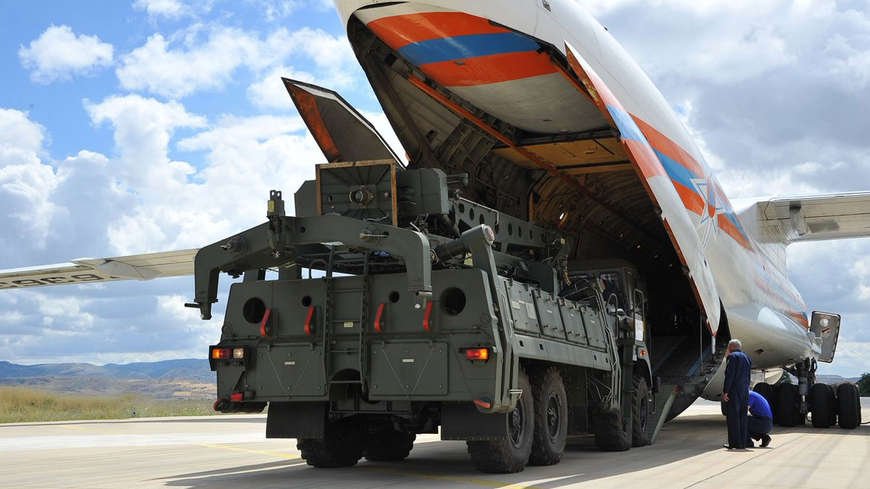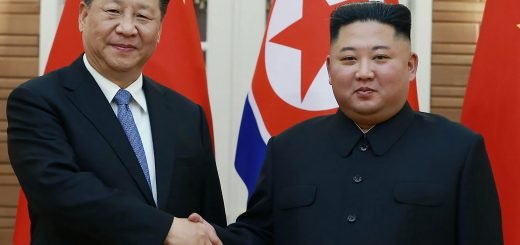Why is Kremlin’s S-400 creating a rift between time & tested allies Turkey and the US?

Late last week, Turkey received the first consignment of Russian S-400 anti-aircraft missile defence system despite growing divide with the United States which under the Donald Trump administration, has fiercely opposed Ankara’s increased proximity to Moscow.
Turkey and the US are both parts of the NATO but in recent times, President Recep Tayyip Erdogan has taken his country increasingly closer to Russia with deeper military ties. Erdogan has visited Russia a record three times this year and has looked defiant to US pressure on relations with Russia and described the $2.5 Billion deal as a major agreement in Ankara’s modern history.
Erdogan needled Washington by saying that Turkey won’t submit to pressure over the Russian agreement.
Erdogan has also pledged to introduce exemptions for Russian businessmen willing to invest funds in Turkey.
On the other hand, Russian President Vladimir Putin has said that Moscow and Ankara may embark on more joint high-tech military equipment projects.
Both countries are also close allies in Syria. The two nations are presently discussing the completion of a pipeline that will carry Russian gas to Turkey and how to coordinate their next moves in Syria.
What is the S-400?
The S-400 is one of the world’s most advanced air defence systems. When deployed as part of a wider military infrastructure, the S-400 has the capacity to take out a wide range of threats including drones, fighter jets and cruise missiles. It was developed in the 1990s by Almaz Central Design Bureau and has been in service with the Russian Armed Forces since 2007. In 2017 the S-400 was described by The Economist as “one of the best air-defence systems currently made” One S-400 system with eight divisions can control up to 72 launchers with a maximum capacity of 384 missiles.
US Anger and Turkish Defense
The United States has denounced Turkey’s decision to buy Russia’s S-400 missile defence system. US President Donald Trump on Tuesday said that the US will not sell Turkey F-35 fighter jets as a result of Ankara buying S-400.

US believes the acquisition of the S-400 system by Turkey fundamentally jeopardises the security of NATO’s new F-35 stealth fighter jet. Turkey has the second-largest military in NATO, a 29 member alliance. Turkey is located in a strategic position, sharing borders with conflict-torn Syria, Iraq and Iran.
US defence officials fear that the Russian military could use an S-400 stationed in Turkey to collect sensitive data about F-35s which is due to form the backbone of NATO member states’ future air operations. Ankara disputes this and rejects such apprehensions.
Turkey has reiterated time and again that the S-400 is to secure its southern borders with Syria and Iraq, and when it made the deal with Moscow for the equipment, the US and Europe failed to present a better alternative.
Meanwhile, Trump has blamed his predecessor, Barack Obama, for failing to keep Turkey out of Russian influence and failing to sell the advanced Patriot missiles to Ankara.
Republican and Democratic leaders of the US Senate Foreign Relations Committee have termed the Turkish action “a troubling signal of strategic alignment with Putin’s Russia
The US has warned that it would exclude Turkey from the F-35 training programme if the S-400 deal went ahead, and warned that it could impose economic sanctions. A few days back, Turkish pilots training in the F-35s were asked to leave the programme intermittently. The US has already threatened Turkey with Countering America’s Adversaries Through Sanctions Act (CAATSA) sanctions.
Sanctions at this point risk harming the Turkish economy as it battles a falling currency and growing unemployment. It could also hamper Turkey’s long-standing alliance with NATO. Investors in Turkey are naturally very jittery about continuing their interests there.
Though US President Donald Trump met Turkish President Recap Erdogan during G-20 summit in Osaka this month and tried to iron out differences, the dispute seems to escalate further. Following his meeting with Trump, the Turkish leader had claimed that Trump had assured him that Washington would not impose sanctions on Ankara. But Erdogan’s claims were not confirmed by the US administration.
Foreign policy experts fear it could cause long-term damage to Ankara’s relationship with the US, draw Turkey closer to Moscow and imperil the country’s role within NATO.
If in case Washington decides to penalize Turkey, the biggest beneficiary will be Putin as Turkey will then seek to move away from western influence and come under the Russian sphere.
S-400s and India
India like Turkey and China has also decided to buy S-400 from Russia. Last October, India signed a $5 billion (Rs 35,000 crore) deal with Russia to buy five systems of this missile. Like in the case of Turkey, the deal was concluded against strong objections from the US.
Washington as expected, objected to India buying the and said that it might jeopardise future arms sales of high-performance aircraft, such as the F-35, to India.
On Wednesday, Union Minister of State Defence Shripad Naik has said that India will receive the delivery of S-400 Triumf by April 2023.



















